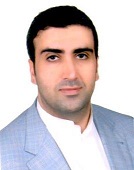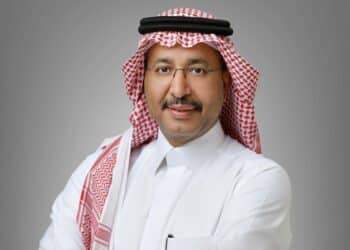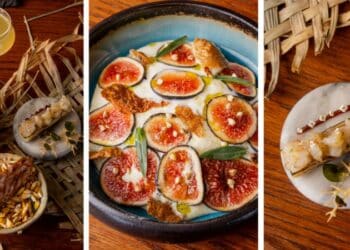Hotel News ME asks coffee suppliers and specialists to elaborate on the latest trends, machines and sourcing beans sustainably.
What are some of the latest trends being seen in the coffee market?
Jones: Over the last few years, the food and beverage industry has evolved at a rapid rate and

consequently, has enhanced consumer appreciation and knowledge for quality coffee. As such, we’ve witnessed an increased interest in specialty coffee amongst the foodservice and retail segments, as consumers turn to microlots and single origins to use their knowledge and experiment with flavours found in the coffee. These flavours are enhanced through alternate brew methods such as a Chemex coffee maker, rather than a traditional espresso extraction.
Elyaderani: There is greater expectations for unique, high quality coffee beverages since it is notable that the palates of comsumers are changing towards the flavour and the profile of quality specialty coffees. Moreover, the role of a barista has expanded into becoming that of a mixologists due to the rising popularity of this trend.
People in the UAE look for variety and value for money, that is why Julius Meinl emphasises the importance of serving high quality coffee with a unique coffee experience.
De Silva: Regarding investment, monitored trends are all pointing in one direction: go global. In

Regarding consumption, the capsule market presents challenges as it goes against the traditional coffee making methods. today’s consumers don’t limit themselves at drinking a cup of coffee, but they want to know where the plant is grown and what coffee varieties are included into the blend.
Billingham: Everything in the coffee market is heading towards capsules and that is because the patent from Nespresso was lifted which opened the door for everybody to actually make compatible capsules, as far as BONCAFE Middle East is concerned we set up and did our own capsules in our plant in Thailand which is Lavazza compatible and we will be launching our Nespresso compatible capsules around February 2016.
Sinno: Coffee shops are moving towards roasting their own beans to control quality, improve supply chain efficiency, and gain the creative freedom to experiment with roast profiles. The

novelty aspect of the beans being roasted on the grounds has had massive appeal with consumers and has generated interest in the process of making coffee. This has also led to having more transparent processes in coffee shops, where coffee bars and espresso machines are being positioned in a way to provide coffee fans a front row seat to showcase the craftsmanship and art that goes into making a cup of coffee.
How is the perception of coffee changing in the Middle East?
Sinno: Coffee is becoming more of a specialty and luxury item than a mere commodity that wakes people up in the morning. Customers are becoming much more discerning of quality, thus more willing to pay higher price points for their daily cup of Joe. Coffee drinkers are also becoming coffee aficionados and are more interested in understanding what goes into their cup of coffee, as they identify themselves as loyal specialty coffee consumers.
Jones: Despite the fact that more than 50% of the UAE’s population hail from East Asia and the Indian subcontinent with a consumer base that favours tea over coffee, the demand for coffee is booming. According to research by Euromonitor, the UAE’s coffee consumption market is set for remarkable growth and will be worth $112 million by 2017, which Coffee Planet will take full advantage of in the coming year.
Billingham: The coffee market in the UAE is much more competitive and there are local roaster that have started out, which is what we call micro-roaster. More people are buying into artisian coffee shops and concepts as he knowledge pool of coffee grows. Coffee culture, especially in Dubai is catching up with the likes of London.
 De Silva: The UAE alone spent $121 million on the beverage sector; a sum that Euro monitor expects will grow by 35% in the next five years by 2020. 82% of those surveyed this year said they consume coffee every day. Another 13% responded that they have coffee a few times a week. As the demand in coffee increases in the Middle East, people are becoming more knowledgeable and create innovative techniques in the preparation of coffee.
De Silva: The UAE alone spent $121 million on the beverage sector; a sum that Euro monitor expects will grow by 35% in the next five years by 2020. 82% of those surveyed this year said they consume coffee every day. Another 13% responded that they have coffee a few times a week. As the demand in coffee increases in the Middle East, people are becoming more knowledgeable and create innovative techniques in the preparation of coffee.
Where do you source your coffee beans from and how is sustainability taken into account when sourcing and farming?
Jones: We source coffee from over 23 countries around the world, including: Africa, Indonesia, India, Central and South America. We also pride ourselves on buying only specialty grade beans, grown over 1700m above sea level, which is compliant to our 100% pure Arabica coffee standard. We buy direct from the source to guarantee quality, a fair price for the farm and to always learn more about the coffee bean. This approach helped us achieve our UTZ certification in 2013, whereby we directly support coffee farmers and their workers, in learning better farming methods and improving their working techniques to grow better crops and generate a regular income.
Elyaderani: Sustainability is more than just a word at Julius Meinl. We live it, believe it, think it and are convinced it is the only way forward in the future. Julius Meinl made a commitment to have products certified by different organisations such as Fairtrade, Rainforest Alliance and UTZ. By choosing to source coffee from these certified farms, we are having demonstrable impacts on the ground, conserving natural resources and improving the lives and livelihoods of farm communities.
Sinno: Coffee has various classifications that determine farmer involvement in various  combinations of social, environmental, and economic standards. Coffees that fit these categories and that have been certified to match these criteria are then labeled “sustainable coffees”. The problem is that many of these certifications are not accredited and only used as a marketing ploy to sell their coffee.
combinations of social, environmental, and economic standards. Coffees that fit these categories and that have been certified to match these criteria are then labeled “sustainable coffees”. The problem is that many of these certifications are not accredited and only used as a marketing ploy to sell their coffee.
Spill the Bean is committed to only buying and serving 100% organic, 100% ethically traded, and 100 %freshly roasted Arabica beans from sustainable sources- that is credibly certified. As such, we have chosen to work with Raw Coffee Company; as they are the only coffee supplier in the UAE that is committed to providing beans that are of high quality, specialty graded, organically certified, and roasted in small batches to maintain freshness.
De Silva: illycaffè manufactures a unique blend of 100% Arabica espresso coffee. The taste and aroma of illy coffee are the result of the masterly blending of the best Arabica coffee varieties, coming from producing countries in South America, Central America, India, Africa, and China. The beans are selected through a supply chain based on economic and environmental sustainability. illycaffè has developed an exclusive approach to sustainability, that rests on three main pillars: selection and direct working relations with the best producers of Arabica coffee; know-how transfer, and training to quality production while always respecting the environment; remuneration for the quality produced, and the pledge to provide them with a profit anyway, so to make their production sustainable. This vision goes very far back in years: in fact, since the Eighties illycaffè has always purchased 100% of its raw materials directly from the producers, without go-betweens and outside the commodity international market.
Billingham: There is Fairtrade and UTZ for example who encourage sustainable surcing and [rptect the farmers, unfortunately a lot of the time when people are offered these products and they see that it is more expensive, they will back away from it and go back to the original pricing. Since joining the MZB Group, we now have plantations in Hawaii, Brazil and Vietnam. As an example we work with the Thai farmers in Thailand and purchase on the international stock exchange everywhere in the world we source beans so that a fair rate is secured.
How do you educate your customers on matters such as fair trade and where your beans come from?
Sinno: We ensure that the information is readily available and clearly communicated as part of our store visuals, as it is an integral part of our brand DNA. We also have posters in the shop that highlight the beans that we are showcasing each month, where they come from, and the tasting notes they can expect to enjoy from these beans.

Jones: Coffee Planet is not Fairtrade, we are however immensely proud of our internationally renowned UTZ certification and believe it’s our responsibility to educate the foodservice industry and consumers about quality coffee, the origin of their beans and how to select premium quality coffee from fair farms.
De Silva: To spread the knowledge and culture of coffee, in 2000 illycaffè created Università del Caffè, that spreads its heritage of competences to coffee producers and growers, coffee bar businessmen, baristas, restaurants, hotels, consumers and coffee lovers alike. With branches in Trieste and all over the world, including Dubai ( The Coffee Training Institute-Dubai), the Università del Caffè is an international knowledge hub where experts from different sectors – from the scientific to the economic and cultural sector – can exchange views and work together, generate new stimuli and create a real communion of ideas with the power of a cup of coffee as a starting point. In 14 years of business, it has trained more than 158 thousand people worldwide.
What are some of the latest technological developments in coffee machines?
Jones: As part of our continued efforts to provide complete coffee solutions, we offer an extensive range of state-of-the-art machines from leading manufacturers – and new to product lines including the world’s leading fully automatic machines from Eversys, whereby the coffee bean mimics the same journey as that from a barista operated machine.
Sinno: It’s been more about the accessories than anything else; and we are loving smart scales. Smart scales monitor the weight, time, and flow rates as you brew the coffee and also save coffee brewing processes to recreate the perfect cup of coffee. Most of these are Bluetooth enabled and allow you to store data via phone apps.
A very interesting brewing gadget new to the market is the steampunk brewer that uses a steam boiler and a computer to control the many parameters that effect the brew, such as water temperature, pressure, and agitation. It then allows the barista to replicate an array of brewing methods for coffee or tea and is even programmable and allows the input of recipes.
De Silva: Individual boilers for each group head (coffee machine) as it enables the
barista to adjust the temperature on each group head. Next, Teflon steam wands on coffee

machines, which prevent the barista from hand burns. And Digital -grind on demand ( Grinders, they dispense the right amount of grind coffee in the porta-filter without wastage and ensure freshly ground coffee for each cup.
Billingham: A great technological development comes from Thermoplan, their milk system technology is currently unique as it adds air instead of water, it has a 1.8 mm coils that goes into the boiler and so the boiler then heats the milk through a tube and then air goes into the tube to creat a siky foamy cappicino milk, so now at least 70 – 90% of drinks are now milk based.
How has technology changed the way coffee is produced, manufactured and served?
Jones: Technology has allowed us to change the way we prepare and consume quality coffee. Single serve capsules are a great example of how technologically advanced machines offer a unique speed and convenience factor to the drinking occasion.
Sinno: Drastically, as it has affected every other commodity. The simplest way to see the effect of technology on coffee is to check out all the apps out there that allow a whole new level of quality control when it comes to brewing, like the Mincher App that even has server side brewing recipes.
Billingham: If you look at the evolution of coffee, you have gone from drum roasting to turbo-air roasters. From the manufacturing perspective, like everything technology has evolved the process, for example computer programs allow us to do traditional roasting but control the whole process through a computer. The coffee itself hasn’t changed, it is the processes that has transformed.
There is a rise in custom blends, why do you think this is?
Jones: With the emergence of choice and an increased interest coupled with a deeper understanding of coffee, consumers are turning to a diverse range of custom blends from the bean belt, such as rich flavour profiles from Ethiopia and Central and South America to name but a few. Recognising the benefit of fresh, good quality coffee, consumers are also beginning to favour coffee that is roasted locally, while pushing the boundaries to explore unique brewing methods.
It is not only the way people enjoy their coffee and the taste of fine aromas, consumers are now interested in the sourcing fine taste. Moreover there is a worldwide consumer trend which is to individualise products. Considering these developments Julius Meinl launched “MYMEINL – create your unique coffee on mymeinl.com.” This worldwide service allows coffee-lovers to customise their personal coffee, to be the master blender for their very own coffee. Each individual can pick from the finest beans and create a unique blend, choose the roasting and grinding level, add a poem and give their coffee a name – there are (nearly) no limits for your imagination. Each coffee is hand-crafted and individually freshly roasted, ground and packed.
Sinno: With so many new coffee shops popping up every day, coffee providers need to distinguish themselves and give customers a brew that they won’t get anywhere else. A distinct custom blend gives them that edge. Plus, creating your own blend is one of the most exhilarating exercises for a roaster or coffee shop. It’s a little bit of a science experiment with endless possibilities and boundless potential for explosively exciting new combinations and flavors.



































































